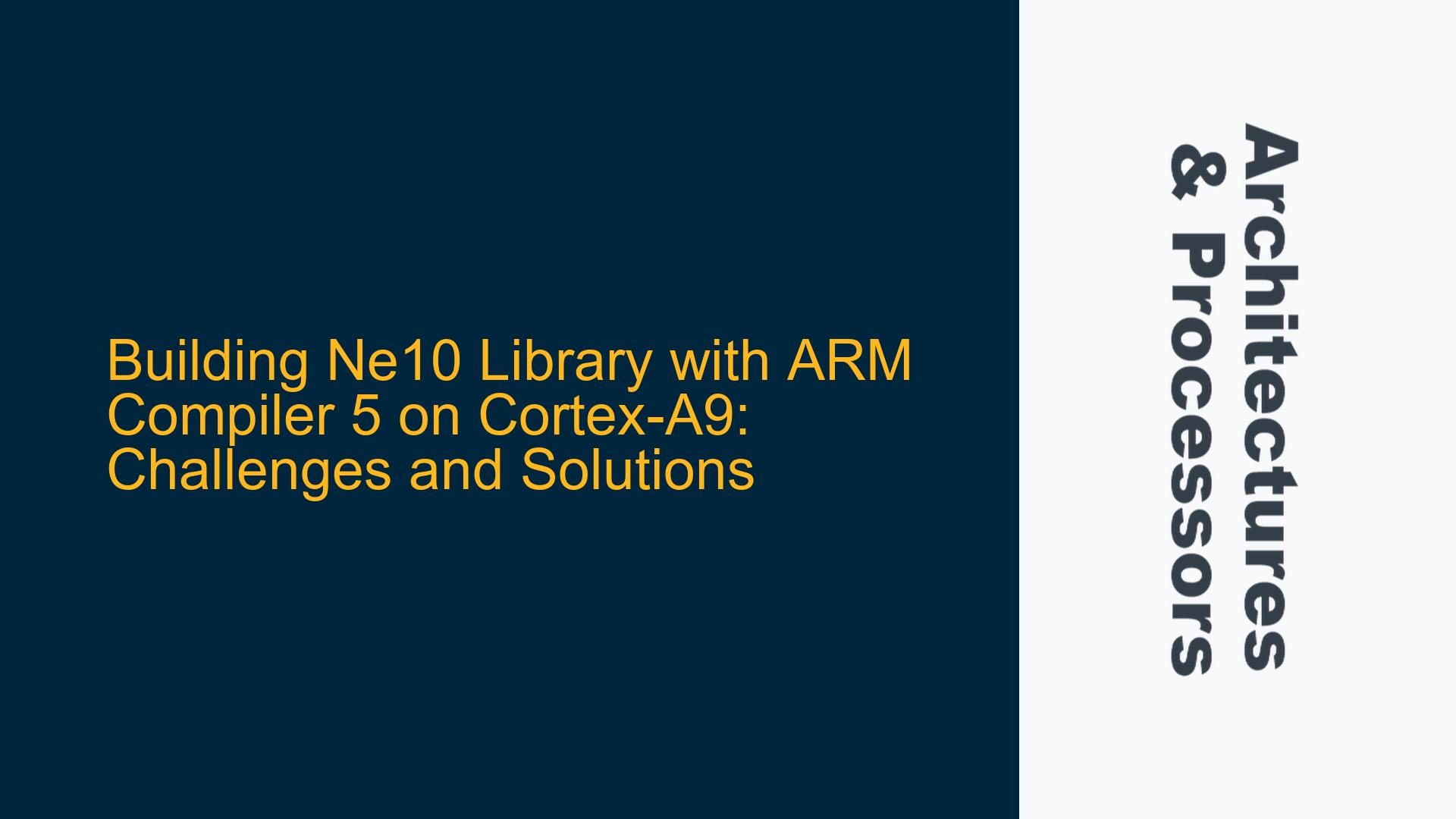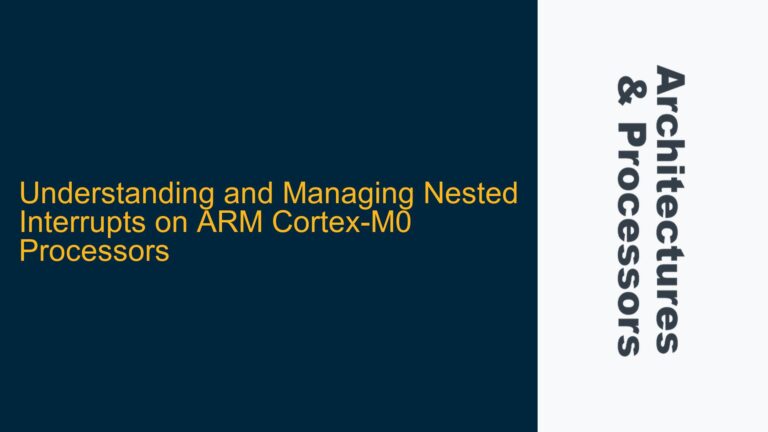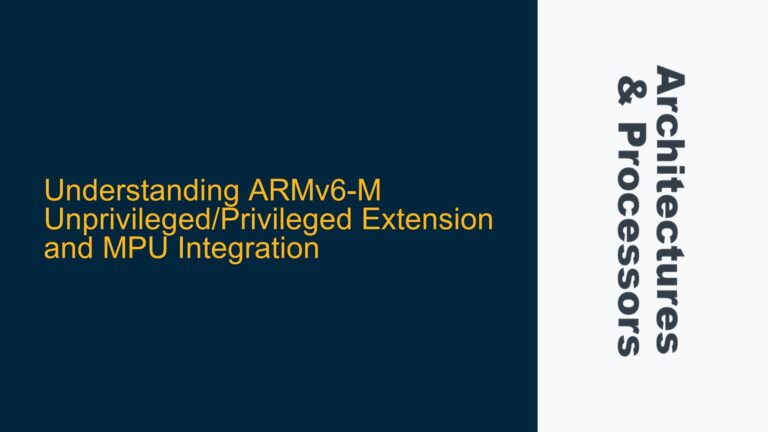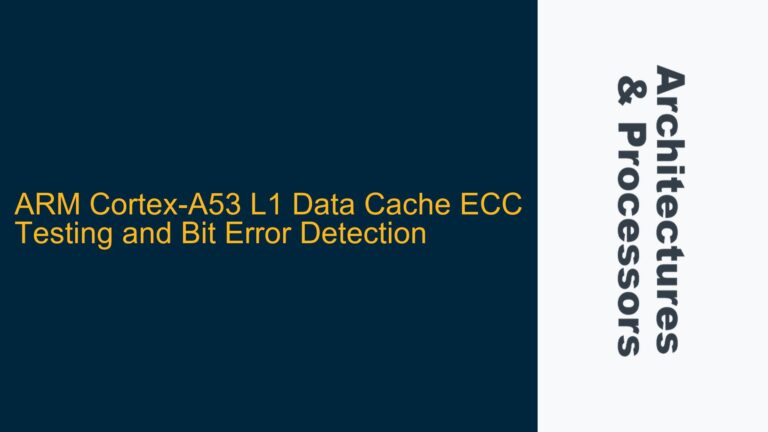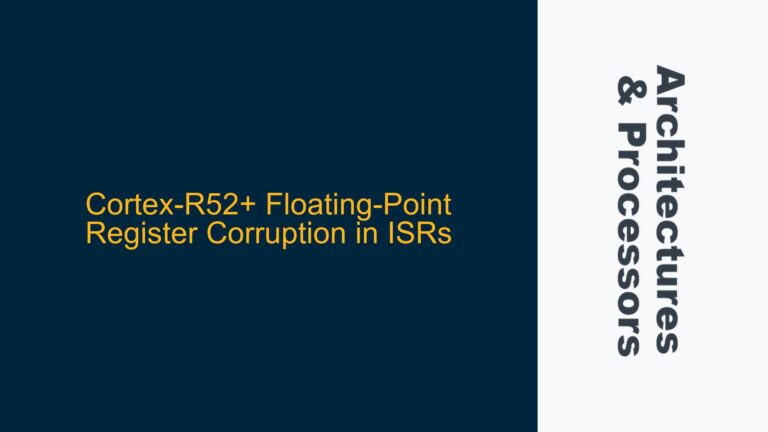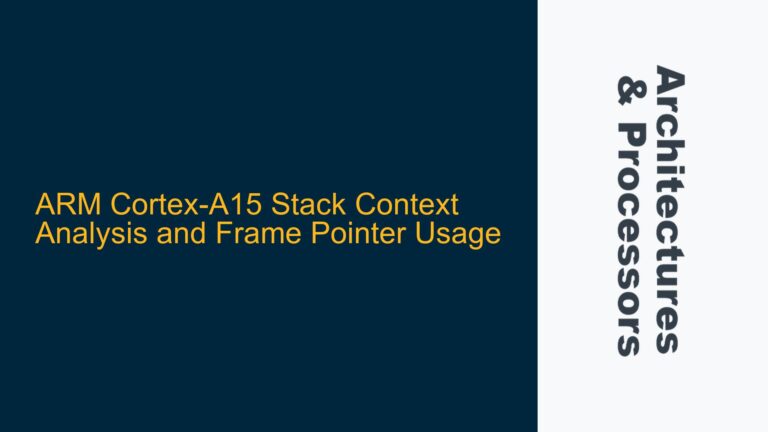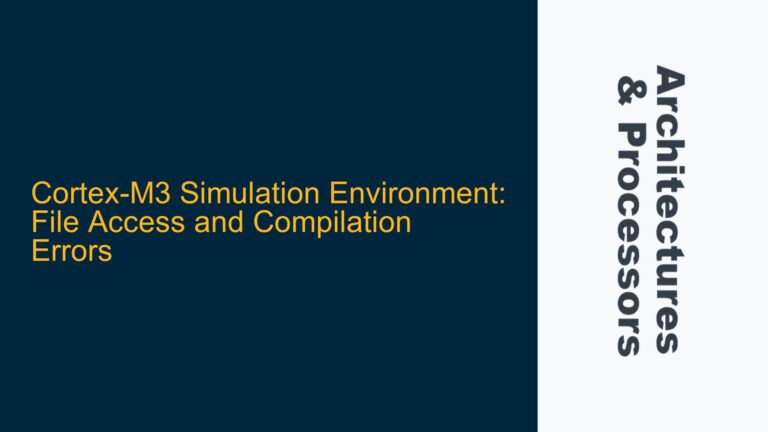ARM Cortex-A9 Compilation Issues with Ne10 Library and ARM Compiler 5
The Ne10 library, a popular open-source library optimized for ARM architectures, is designed to leverage the capabilities of ARM processors, particularly for signal processing, matrix operations, and other computationally intensive tasks. However, integrating the Ne10 library into projects using ARM Compiler 5 (also known as ARMCC) on ARM Cortex-A9 processors presents significant challenges. The primary issue stems from the fact that the Ne10 library is primarily tailored for GNU-based compilers or ARM Compiler 6 (ARMClang), which aligns more closely with GNU toolchain conventions. ARM Compiler 5, while powerful, uses a different syntax and set of conventions, leading to compatibility issues during compilation.
The Cortex-A9, a dual-core processor often used in embedded systems, relies heavily on efficient library implementations to maximize performance. When the Ne10 library fails to compile with ARM Compiler 5, developers are left with either suboptimal performance or the need to rewrite significant portions of the library. This issue is particularly problematic in legacy systems where upgrading to ARM Compiler 6 is not feasible due to project constraints or compatibility concerns.
The core of the problem lies in the differences between ARM Compiler 5 and GNU-based compilers. ARM Compiler 5 uses the ARMCC toolchain, which has a distinct syntax for inline assembly, preprocessor directives, and linker scripts. Additionally, ARM Compiler 5 lacks support for certain GNU extensions and C++ features that the Ne10 library relies on. This mismatch results in compilation errors, unresolved symbols, and performance bottlenecks when attempting to build the Ne10 library with ARM Compiler 5.
ARM Compiler 5 and GNU Compiler Incompatibility in Ne10 Library
The incompatibility between ARM Compiler 5 and the Ne10 library arises from several key differences in the toolchains. ARM Compiler 5, based on the ARMCC toolchain, uses a proprietary syntax for inline assembly, which differs significantly from the GNU Assembler (GAS) syntax used in the Ne10 library. This discrepancy leads to syntax errors when the ARMCC toolchain encounters GNU-style inline assembly in the Ne10 source code.
Another major issue is the handling of preprocessor directives. ARM Compiler 5 does not fully support certain GNU extensions, such as __attribute__((aligned)) or __builtin_expect, which are extensively used in the Ne10 library for performance optimization and memory alignment. When these directives are encountered, ARM Compiler 5 either generates warnings or fails to compile the code altogether.
Linker script compatibility is another critical factor. The Ne10 library relies on GNU linker scripts to manage memory sections and symbol placement. ARM Compiler 5, however, uses its own linker script format, which is not directly compatible with GNU linker scripts. This incompatibility results in unresolved symbols and incorrect memory allocation during the linking phase.
Finally, ARM Compiler 5 lacks support for certain C++ features, such as nullptr and auto, which are used in modern C++ code within the Ne10 library. This forces developers to either rewrite portions of the library or disable certain features, leading to reduced functionality and potential performance degradation.
Modifying Ne10 Library for ARM Compiler 5 Compatibility
To address the compilation issues when using ARM Compiler 5 with the Ne10 library on Cortex-A9 processors, developers must undertake a series of modifications to the library source code and build system. These modifications involve rewriting inline assembly, replacing unsupported preprocessor directives, adapting linker scripts, and addressing C++ compatibility issues.
The first step is to rewrite the inline assembly in the Ne10 library to conform to ARM Compiler 5 syntax. This involves replacing GNU-style assembly blocks with ARMCC-compatible syntax. For example, a GNU-style inline assembly block like:
__asm__ volatile ("mov r0, #0");
must be rewritten as:
__asm volatile ("mov r0, #0");
Additionally, developers must ensure that register usage and operand constraints are correctly specified in ARMCC syntax.
Next, unsupported preprocessor directives must be replaced with ARM Compiler 5 equivalents. For instance, the GNU __attribute__((aligned)) directive can be replaced with ARM Compiler 5’s __align keyword. Similarly, __builtin_expect can be replaced with conditional compilation or manual branch prediction hints.
Linker script compatibility can be addressed by converting GNU linker scripts to ARM Compiler 5 format. This involves rewriting memory section definitions and symbol placements to match ARMCC syntax. Developers may also need to modify the build system to use ARM Compiler 5’s linker instead of the GNU linker.
Finally, C++ compatibility issues can be resolved by replacing unsupported features with ARM Compiler 5-compatible alternatives. For example, nullptr can be replaced with NULL, and auto can be replaced with explicit type declarations. In some cases, it may be necessary to rewrite entire functions or classes to ensure compatibility.
To streamline the process, developers can create a custom build configuration for ARM Compiler 5. This configuration should include modified source files, adapted linker scripts, and a tailored build system. By maintaining separate configurations for ARM Compiler 5 and GNU-based compilers, developers can ensure compatibility across different toolchains without sacrificing functionality or performance.
In conclusion, while building the Ne10 library with ARM Compiler 5 on Cortex-A9 processors presents significant challenges, these issues can be resolved through careful modification of the library source code and build system. By addressing inline assembly syntax, preprocessor directives, linker script compatibility, and C++ features, developers can achieve a successful compilation and leverage the performance benefits of the Ne10 library in ARM Compiler 5-based projects.
